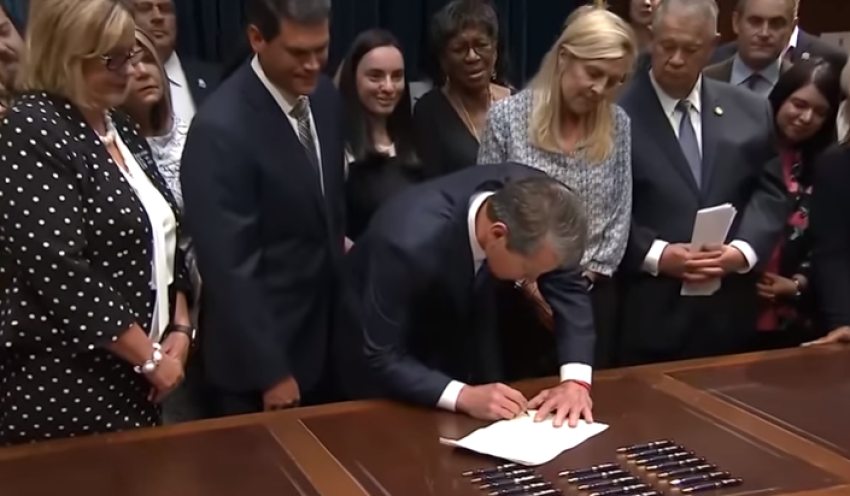Federal judge temporarily blocks Georgia's heartbeat abortion ban

A district court in Atlanta has issued a temporary block on a Georgia law that bans abortions after a baby's heartbeat is detected, which can be as early as six weeks into a pregnancy.
Judge Steven Jones granted a preliminary injunction on Tuesday, likely preventing the heartbeat law from taking effect on Jan. 1, 2020, while the legal challenge is ongoing.
“What is clearly defined, however, is that under no circumstances whatsoever may a state prohibit or ban abortions at any point prior to viability, no matter what interests the state asserts to support it,” Jones wrote in his ruling.
“By banning abortions after a fetal heartbeat is detected, HB 481 prohibits women from making the ultimate decision to terminate her pregnancy at a point before viability.”
The American Civil Liberties Union, which is involved in a lawsuit filed against the law, celebrated the district court decision to temporarily block the measure.
Talcott Camp, deputy director of the ACLU’s Reproductive Freedom Project, said in a statement released Tuesday that they “won't stop fighting until we defeat all efforts to block access.”
“This is a victory for people in Georgia and a reminder that these attacks on abortion access are illegal. Abortion is still legal in all 50 states,” Camp added.
Candice Broce, director of communications and deputy executive counsel for Georgia Governor Brian Kemp, told The Daily Caller News Foundation that they “remain confident” despite the injunction.
“We will continue to fight for the unborn and work to ensure that all Georgians have the opportunity to live, grow, and prosper,” Broce said.
In May, Kemp signed House Bill 481 into law, which banned abortions after a heartbeat is detected. This made Georgia the fourth state after Kentucky, Mississippi, and Ohio to pass such legislation this year.
Republican State Representative Ed Setzler, speaking at the bill signing, called the legislation a "common sense issue" and noted that anyone can see that an unborn baby is clearly human.
“When you recognize what science, law and common sense tells us today, that those in utero in Georgia, with a human heartbeat, with a full circulatory system, and all the components of humanity should get full protections of our laws,” he said in May.
The law garnered criticism from abortion-rights groups and threats of boycott from several Hollywood entertainment companies. Ted Sarandos, Netflix’s chief content officer, told Variety that his company was working with the ACLU to fight the new law.
“We have many women working on productions in Georgia, whose rights, along with millions of others, will be severely restricted by this law,” Sarandos said earlier this year.
“Given the legislation has not yet been implemented, we’ll continue to film there, while also supporting partners and artists who choose not to. Should it ever come into effect, we’d rethink our entire investment in Georgia.”



























